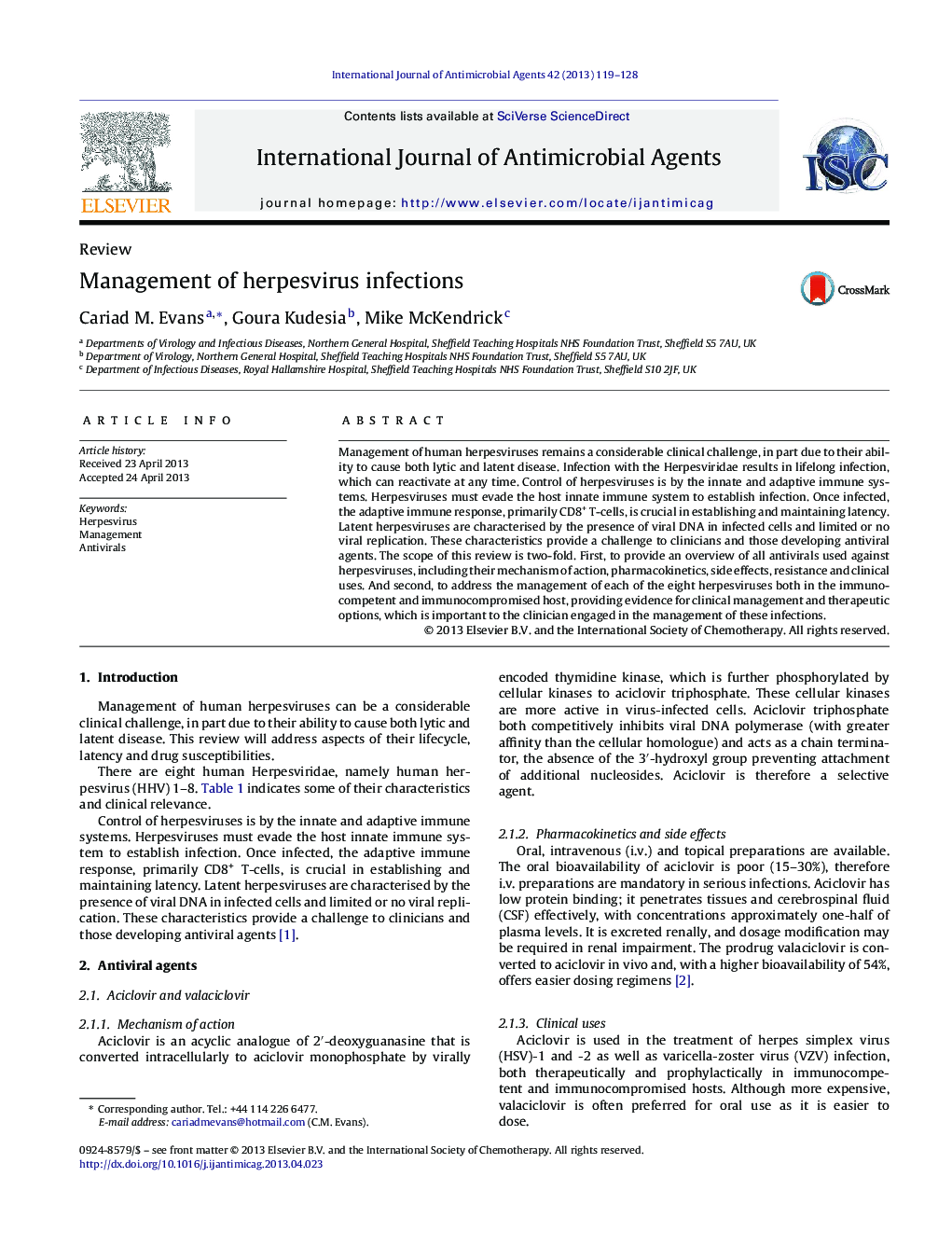| Article ID | Journal | Published Year | Pages | File Type |
|---|---|---|---|---|
| 3358716 | International Journal of Antimicrobial Agents | 2013 | 10 Pages |
Management of human herpesviruses remains a considerable clinical challenge, in part due to their ability to cause both lytic and latent disease. Infection with the Herpesviridae results in lifelong infection, which can reactivate at any time. Control of herpesviruses is by the innate and adaptive immune systems. Herpesviruses must evade the host innate immune system to establish infection. Once infected, the adaptive immune response, primarily CD8+ T-cells, is crucial in establishing and maintaining latency. Latent herpesviruses are characterised by the presence of viral DNA in infected cells and limited or no viral replication. These characteristics provide a challenge to clinicians and those developing antiviral agents. The scope of this review is two-fold. First, to provide an overview of all antivirals used against herpesviruses, including their mechanism of action, pharmacokinetics, side effects, resistance and clinical uses. And second, to address the management of each of the eight herpesviruses both in the immunocompetent and immunocompromised host, providing evidence for clinical management and therapeutic options, which is important to the clinician engaged in the management of these infections.
